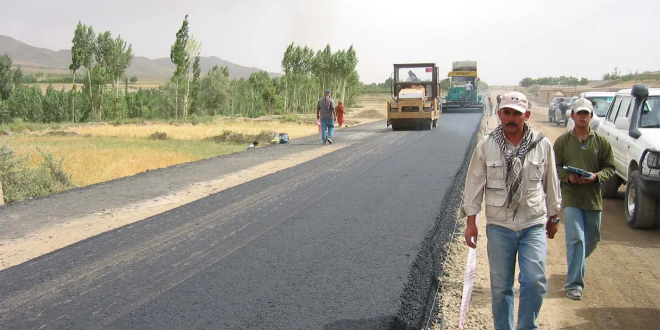AT News
KABUL: In a landmark move aimed at bolstering regional connectivity and trade, Kazakhstan, Afghanistan, and Turkmenistan have inked a pivotal agreement to revitalize transit and transport infrastructure in war-torn Afghanistan.
At a high-level trilateral meeting held in Kabul on April 27, key figures including Kazakh Deputy Prime Minister Serik Zhumangarin, Turkmenistan’s Transport and Communications Agency Director General Mammetkhan Chakyev, and Afghan Minister of Commerce and Industry Nooruddin Azizi, charted out a comprehensive strategy to overhaul Afghanistan’s transit landscape.
The crux of the accord revolves around streamlining tariff conditions to facilitate the seamless passage of container trains originating from China, traversing through Kazakhstan and Turkmenistan, and culminating in Afghanistan. From there, the goods are slated to fan out to key markets in Pakistan, India, and the Middle East.
Preliminary estimations suggest that this accelerated route, linking China’s industrial hubs to Afghanistan’s bustling markets, could slash delivery times by a staggering margin, reducing it to a mere 10-12 days. Such efficiency gains promise to revolutionize the logistics landscape, offering Afghan businesses a lifeline to ensure a steady inflow of Chinese merchandise while significantly trimming transportation costs.
The strategic invitation extended to Afghan enterprises to leverage Kazakhstan’s cutting-edge terminal facilities underscores a commitment to facilitate seamless trade flows. Solar panels, diesel generators, mobile phones, and office equipment are among the array of goods earmarked for direct shipment, underscoring the breadth of economic opportunities awaiting Afghan businesses.
Zhumangarin underscored the imperative of recalibrating traffic dynamics and reiterated forthcoming infrastructure endeavors, underlining the pivotal role of the Beineu-Aktau-Bolashak corridor in bolstering regional connectivity.
Moreover, stakeholders hailed the newfound momentum injected into the eastern wing of the international North-South transport corridor, poised to emerge as the linchpin for ferrying goods from Russia and Belarus through Kazakhstan and Turkmenistan, thereby fostering robust economic exchanges with Afghanistan, India, and the Middle East.
In a decisive move to translate vision into action, the parties committed to establishing a dedicated working group tasked with expediting the implementation of the transformative agreements forged during the historic gathering.
This trilateral accord not only holds the promise of revitalizing Afghanistan’s economy but also signifies a beacon of hope for fostering enduring peace and prosperity across the war-ravaged nation and beyond.
 Afghanistan Times
Afghanistan Times




